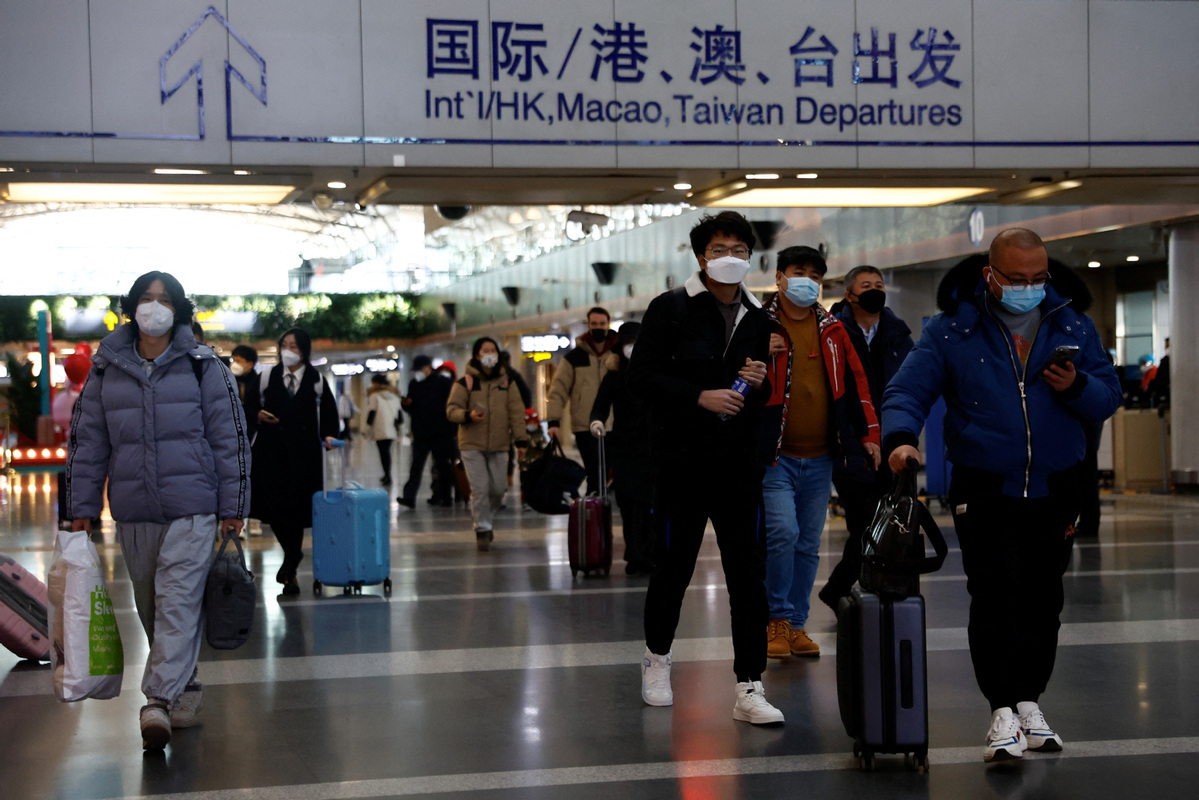
The global resurgence of COVID-19 has prompted media outlets in some Western countries, including the United States, to launch yet another campaign to tarnish China.
A quick flashback of the ravages of the pandemic will show how some US politicians and media outlets' allegations — that the virus had spread across the world at an amazing speed due to China's lack of transparency during the first wave of infections — were unfair. They also criticized Beijing for being too strict with its lockdown regulations. And now those people are criticizing China for easing the strict anti-pandemic measures, saying it could spread the virus at a much faster speed.
The fact is that the Chinese authorities eased the restrictions after leading epidemiologists analyzed that the move will not endanger most people's lives. This shows some Western politicians' primary objective is to undermine Beijing's domestic and international efforts to combat the pandemic.
During the early days of the pandemic, China promptly shared the results of its pandemic-prevention and control measures, setting an important example for the rest of the world to follow. Implementing strict measures, it checked the spread of the virus at home faster than any other country. It also sent medical teams, masks, and medical equipment to several countries.
In the past three years China has pledged to donate at least $3 billion to the international fight against the pandemic. It has also been actively involved in the international COVID-19 vaccine development, medical treatment, and prevention and control measures. China also continued to advocate coordinating global measures to fight the virus and build a global public health emergency response mechanism to fight future pandemics.
China outperformed the US in developing effective virus-control strategies. Before the reopening, China took strict but effective measures to contain the pandemic when the virus was more deadly. And the strict approach protected most people from the virus.
Meanwhile, China actively implemented its vaccination policy to cover all citizens for free, which was aimed at helping most people gain immunity. By the end of 2022 it had vaccinated more than 1.3 billion people in the country. And it has been monitoring the spread of the virus and warning locals about possible outbreaks.
China has delivered more than 2.2 billion doses of vaccines to more than 120 countries and international organizations in Africa, the Asia-Pacific, South America and Europe.
When some people in the US and some other developed countries accuse another country of not reporting daily number of infections, they probably ignore the fact that the US itself stopped reporting daily COVID-19 cases since October last year, and miserably failed to curb the spread of the deadly variants of the virus, which raised the death toll in the US to more than 1 million — the highest in the world.
The CNBC reported that the US alone had more than 100 million formally diagnosed and registered COVID-19 patients by last week, but experts estimate the number of Americans infected since the start of the pandemic may be twice as much as the official figure.
Besides, epidemiologists argue that no new variant from China has been observed thus far and the screening policy adopted against Chinese visitors by some countries including the US and Japan is "discriminatory", especially considering that China has now considerably relaxed its inbound travel rules.
Unable to contain the pandemic and boost the economy, some Western politicians and media outlets are now resorting to bizarre policies to cover up their own countries' failures by disparaging China's spectacular achievements. They have also been fabricating false stories and propagating them across the world through diplomatic lobbying and social media platforms, as well as the mainstream media.
Given China's amazing strides across many fields, the US' contrived strategies and media blitz may only serve to jeopardize global cooperation and peace. So in the war of narratives, the world should objectively deconstruct such discourses rather than becoming a victim of the "hybrid wars" of perception-making policies.








 公安备案号:32010202010067
公安备案号:32010202010067